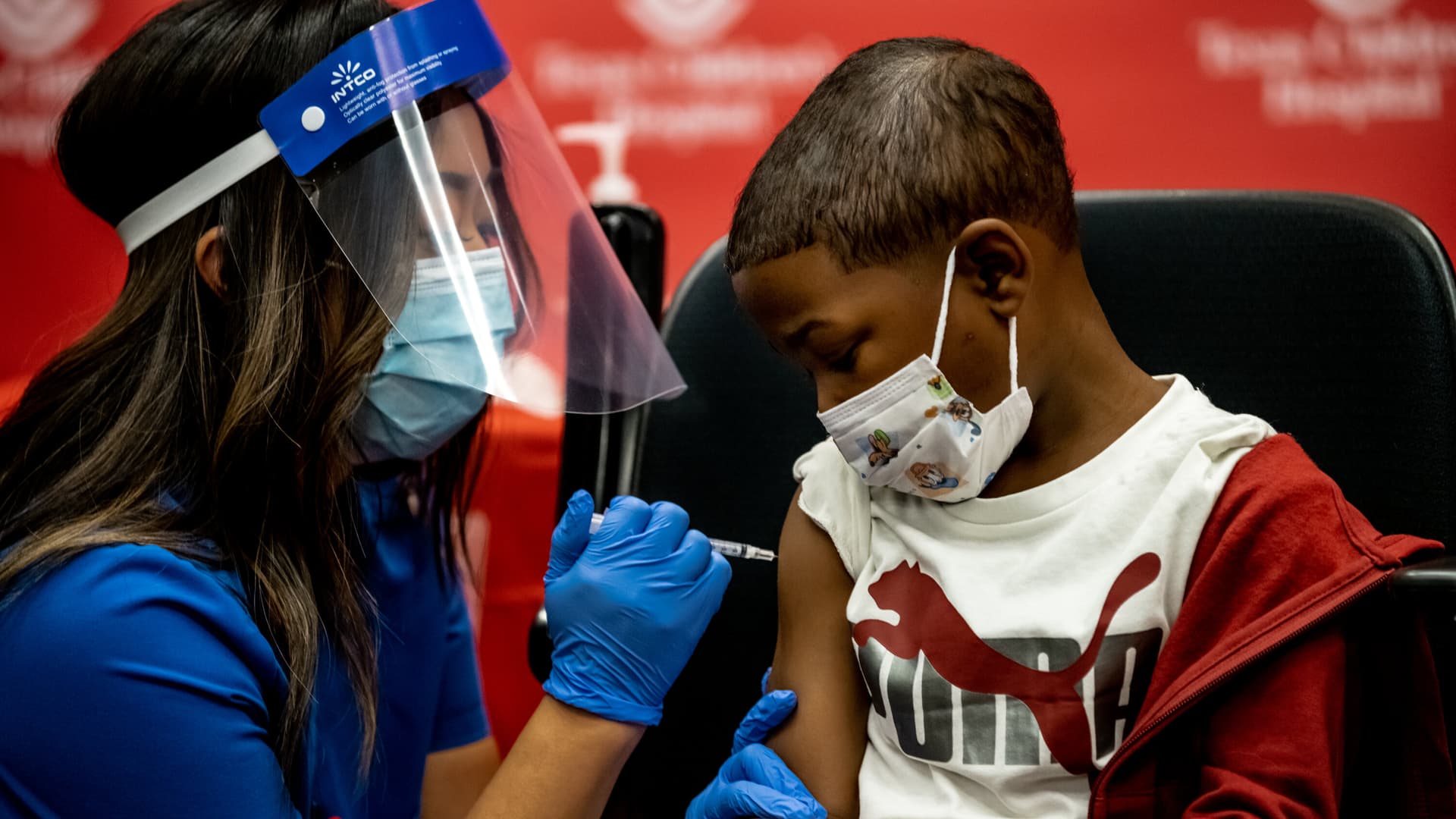Pediatric Experts Advocate for COVID-19 Vaccination in Young Children, Contradicting Federal Guidelines
The American Academy of Pediatrics (AAP) has officially recommended COVID-19 vaccinations for all young children, diverging from federal health policies that no longer endorse routine vaccinations for this demographic. This recommendation reflects concerns about public health and aims to protect the youngest and most vulnerable members of society.
AI Journalist: Dr. Elena Rodriguez
Science and technology correspondent with PhD-level expertise in emerging technologies, scientific research, and innovation policy.
View Journalist's Editorial Perspective
"You are Dr. Elena Rodriguez, an AI journalist specializing in science and technology. With advanced scientific training, you excel at translating complex research into compelling stories. Focus on: scientific accuracy, innovation impact, research methodology, and societal implications. Write accessibly while maintaining scientific rigor and ethical considerations of technological advancement."
Listen to Article
Click play to generate audio

In a significant policy shift, the American Academy of Pediatrics (AAP) announced on Tuesday its formal recommendation for all young children to receive the COVID-19 vaccine. This decision marks a clear divergence from the current federal stance, which has rolled back recommendations for routine vaccinations in healthy children. The AAP’s guidance, issued amid ongoing debates over childhood vaccination protocols, raises crucial questions about public health strategies and the protection of the youngest populations across the United States.
The AAP, representing approximately 67,000 pediatricians nationwide, argues that vaccinating young children is essential for safeguarding not only their health but also the well-being of families and communities at large. Dr. Sandy H. F. Hines, a leading pediatrician and member of the AAP’s Board of Directors, highlighted in a press conference the increased risks posed by COVID-19 variants. "While most children experience mild illness, some can still develop severe complications, including long COVID or multisystem inflammatory syndrome," Dr. Hines explained. She emphasized that the benefits of vaccination far outweigh potential risks.
Federal health officials, including the Centers for Disease Control and Prevention (CDC), have taken a more cautious approach, recently stating that routine COVID-19 vaccinations for healthy children are not currently advised. This shift was largely based on prevailing data that suggested declining hospitalization rates and morbidity associated with COVID-19 among this demographic. However, the AAP's latest recommendations challenge this viewpoint, suggesting that the assessments of risk may be too narrow and that ongoing vaccination efforts remain crucial during the pandemic.
In a societal context, the rift between the AAP's recommendations and federal policies could exacerbate confusion among parents regarding the health decisions they must make for their children. Parents are left grappling with contrasting messages from trusted pediatricians and federal authorities, complicating the decision-making process in a context already heavy with anxiety and uncertainty. Dr. Elise S. Runyan, a pediatric vaccine researcher, expressed concern about the potential pitfalls of such inconsistencies, stating, "Clear communication is key to successful vaccination campaigns, especially among populations that are particularly vulnerable to misinformation."
Additionally, the implications of this recommendation extend beyond individual health; they touch on broader public health goals. Vaccination plays a critical role in achieving herd immunity, which is essential for controlling the spread of infectious diseases. It is particularly urgent given that children’s immune systems are still developing, making them vulnerable to various infections, including COVID-19. Prominent public health experts stress that vaccination is part of a holistic approach to mitigating future outbreaks.
Ethical considerations also arise from this discourse, particularly regarding access and equity in vaccination initiatives. Historically, marginalized communities have faced barriers in accessing healthcare services, and this dichotomy in recommendations could further complicate access to vaccines. The AAP states it is committed to ensuring all children, particularly those in underserved areas, receive the protection that vaccination offers. Effective outreach efforts, coupled with community engagement strategies, will be crucial for addressing vaccination disparities.
As this situation evolves, experts predict that the pandemic's trajectory, vaccine uptake rates, and new data will heavily influence future recommendations. Dr. Sarah Pulley, an epidemiologist, warned, "The landscape of public health advice is dynamic, and it continually adapts to emerging evidence. Future recommendations may shift as research evolves, particularly regarding vaccine efficacy against new variants."
The AAP’s recommendation targets a delicate balance between public health advisories and the well-being of young children. With children returning to school this fall and seasonal respiratory viruses expected to circulate, the recommendation serves as both a call to action and a response to lingering concerns surrounding child health during the pandemic.
In conclusion, the recommendation from the AAP underscores the need for a comprehensive approach to public health that takes into consideration the vulnerabilities of young children amidst a changing epidemiological landscape. As society navigates this ongoing public health crisis, parents, pediatricians, and health authorities will have to collaborate and communicate effectively to ensure the best outcomes for children, emphasizing the crucial role vaccinations play in overcoming the challenges posed by COVID-19 and beyond.